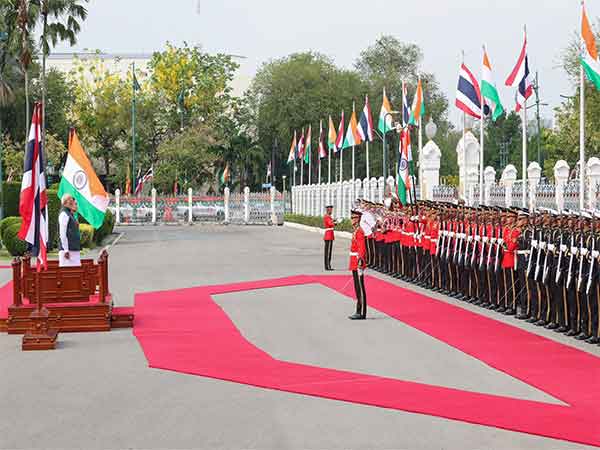As liabilities mount, China's top property giant Evergrande under 'tremendous pressure'
Sep 14, 2021

Beijing [China], September 14 : China's top developer firm Evergrande is under immense pressure as anxious investors recently protested at its Shenzhen headquarters and demanded repayment of loans and financial products, a media report said.
The Hong Kong-listed developer is sinking under a mountain of liabilities totalling more than USD 300 billion after years of borrowing to fund rapid growth, Channel News Asia reported on Tuesday.
Last week, Evergrande was downgraded by two credit rating agencies. Its shares have also tumbled their 2009 listing price. The development came recently as news reports speculated Evergrande's imminent collapse.
Anxious investors on Monday protested at the Shenzhen headquarters of cash-strapped developer China Evergrande Group. The investors crowded its lobby to demand repayment of loans and financial products.
Evergrande has said that it's facing "unprecedented difficulties" but denied rumours that it is about to go under. Evergrande on Tuesday conceded that it is under "tremendous pressure".
On Tuesday, the company's shares fell nearly 9 per cent and are down almost 80 per cent since the start of the year.
An estimate by Capital Economics said that that Evergrande has about 1.4 million properties that it has committed to complete - about 1.3 trillion yuan (US$200 billion) in pre-sale liabilities, as of the end of June, according to Channel News Asia.
Beijing's crackdown on overextended property developers has led to a surge in loan losses. And it has also raised fears of contagion across the nation's $50 trillion financial sector. In the first half of the year, the developers gained good returns compared to pre-pandemic profit levels. However, now the tougher rules including curbs on borrowing leverages and land purchasing have drawn the system to a liquidity crisis and missed debt payments. In the first six months of the year, the real estate sector's nonperforming loans (NPL) jumped to 30 per cent across the five largest banks to 97 billion yuan ($15 billion), according to Nikkei Asia.
Last year, the communist regime's introduced a "three red line" policy that hit the developers badly. As the policy assesses developers' financial soundness and assigns a colour -- green, orange, yellow or red -- based on how many of the "lines" they cross. Through this, regulators would evaluate three ratios -- liabilities to assets, net debt to equity, and cash to short-term debt -- before deciding whether a developer can borrow further or not, Nikkei Asia reported.




















